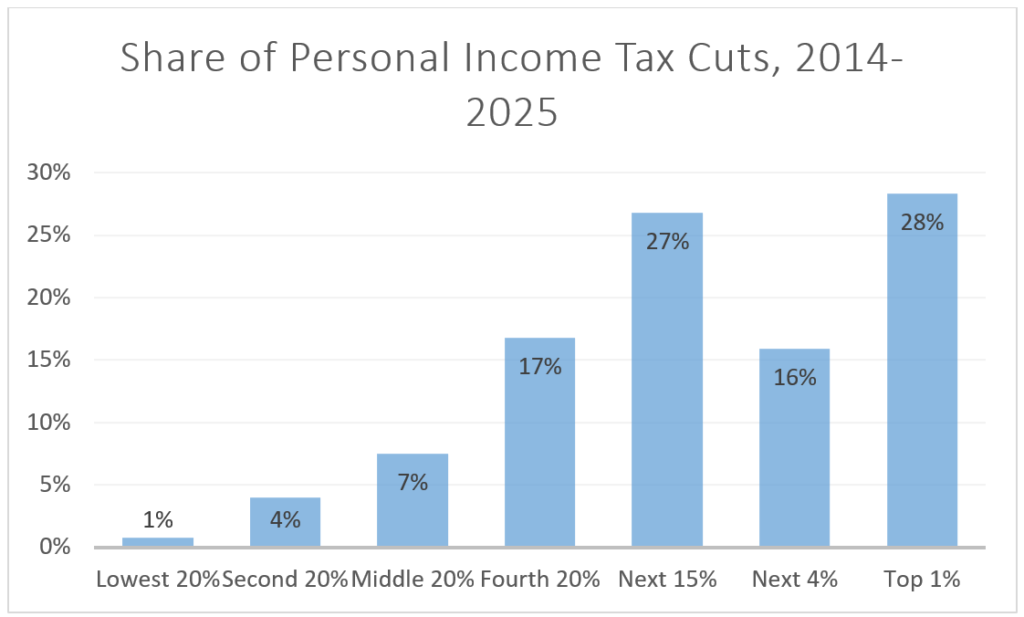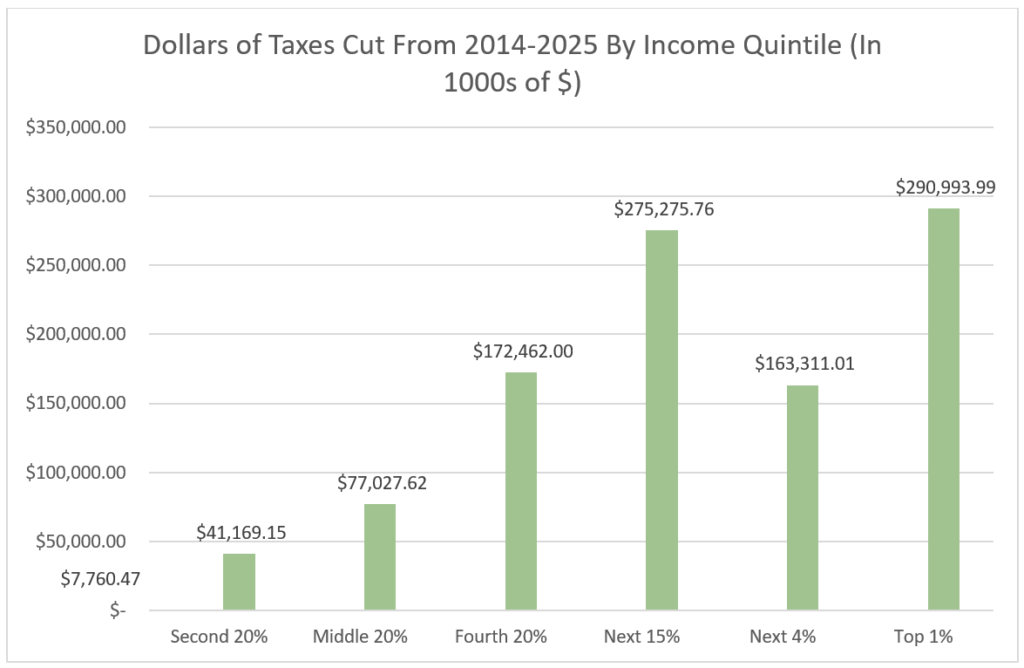
We all want to live in a state with thriving communities, healthy families, and opportunities for our children. Unfortunately, Arkansans consistently suffer from high rates of infant mortality, child poverty, child hunger, and poor educational outcomes. For several years, the share of children enrolled in Pre-K has fallen, the rate of children without health insurance has risen, and more than 1 in 5 children has grown up in poverty.
Policymakers could pass legislation to ensure the state provides more quality health care services for children and families, more affordable and safe housing, resources for our schools, community clinics and hospitals, and more to address these issues.
Instead, starting in 2014 and going through 2025 – when the most recent tax cuts are, for now, scheduled to be fully phased in – the Arkansas Legislature has cut more than $1 billion in annual revenue to pay for personal income tax cuts that mostly benefit the wealthy, according to an analysis by the Institute on Taxation and Economic Policy (ITEP). The Department of Finance and Administration (DFA) estimates the costs somewhat less, at a cumulative total of around $750-$800 million annually – see fiscal impact statements here, here and here. The Governor has announced the Legislature will come together again in August this year to fully phase in their previous giveaway to the rich, and maybe add more on top of that.


In the past decade or so, Arkansas Legislators have sent as many tax dollars back to the 1 percent of Arkansans making more than $503,000 annually as they’ve sent to the 80 percent of taxpayers making less than $98,000 annually. I don’t know too many Arkansans making more than half a million a year who need help right now. Do you?
But since the state budget does require at least some revenue, the Legislature has raised online sales taxes and the gas tax, which cut most heavily into the family budgets of the poor. So it’s no surprise the Legislature refuses to lower these taxes that might actually help everyday Arkansans, most of whom pay more of their income in state sales and excise taxes than in state income taxes according to ITEP analysis.
Still, recklessly accelerating the timeline of these cuts to the top tax rate and enacting new ones makes no sense for most Arkansans. These tax cuts will not help the Arkansans struggling to get to work, keep a roof over their head, or feed their families. Policymakers should instead look to use our $1.6 billion surplus to help Arkansas’s families and communities still struggling with the impacts of supply chain issues and rising prices.
Our out-of-school and summer programs that help children’s educational and economic outcomes have never had annual funding from the state. Neither has our state’s housing trust fund, which could be used to help address our affordable housing crisis. A modest investment in expanded health care for new moms could help bring our maternal mortality rates down in line with the rest of the developed world. And the same is true for children’s health, where modest programmatic changes could reverse our trend of declining health coverage for kids and make sure more children have access to needed care early in life.
All of these would be a better use of state revenue than another cut to the top tax rate that mainly benefits the wealthy.
